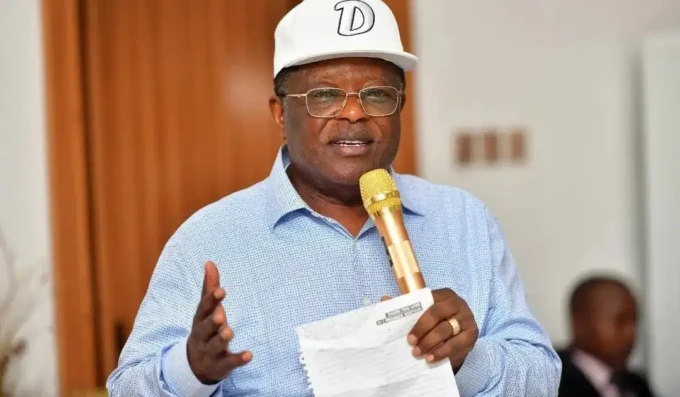The Federal Government of Nigeria has announced a $20 billion savings following the removal of the petrol subsidy and the adoption of market-driven foreign exchange pricing.
Wale Edun, the Minister of Finance and Coordinating Minister of the Economy, disclosed this during an event in Abuja marking the first 100 days in office of Esther Walso-Jack, the Head of the Civil Service of the Federation.
Edun revealed that the subsidies on petrol and foreign exchange had previously cost the nation approximately five percent of its Gross Domestic Product (GDP).
“When there was a subsidy on PMS [Premium Motor Spirit] and on foreign exchange, they collectively cost five percent of GDP. Assuming GDP was $400 billion on average, five percent of that is $20 billion—funds that could now go into infrastructure, health, social services, and education,” Edun explained.
The minister emphasized that the removal of these subsidies is redirecting resources into critical developmental areas. “The real change is that no one can wake up and target cheap funding or forex from the Central Bank to enrich themselves without adding value. Similarly, profiteering from the inefficient petrol subsidy regime is no longer possible,” he said.
This financial redirection, according to Edun, is part of broader efforts by the current administration to enhance the nation’s fiscal discipline and foster economic growth.
President Bola Tinubu officially ended the petrol subsidy regime on May 29, 2023, a move that has sparked debates across the nation. While some hail it as a necessary reform to redirect funds toward development, others criticize the immediate economic hardship it has imposed on citizens.
The Federal Government asserts that the savings will significantly contribute to improving infrastructure, healthcare, education, and other vital sectors, providing long-term benefits for Nigerians.












I dont buy it! Removing subsidies might save money short-term, but what about the long-term impact on the economy and peoples livelihoods? #DebateTime
Long-term benefits outweigh short-term costs. Its time to prioritize sustainable solutions. #SustainabilityMatters
I dont buy it! Removing subsidies only benefits the rich. What about the average Joe struggling to make ends meet?
Im not buying it! Removing subsidies may save money in the short term, but what about the long-term impact on struggling industries?
I dont buy it. Removing subsidies may save money short term, but what about the long-term impact on the economy? Seems shortsighted to me.
Short-term pain for long-term gain. Subsidies distort markets; removing them fosters true economic growth.
I dont buy it. Removing subsidies might save money short-term, but what about the long-term impact on the economy and peoples livelihoods?
I dont buy it! Removing subsidies might save money in the short term, but what about the long-term impact on vulnerable communities? #NotConvinced
I dont buy it! Removing subsidies sounds like a quick fix. What about the long-term impact on vulnerable communities?
I dont buy it! Removing subsidies only hurts the little guy. Wheres the proof that this $20 billion actually benefits the people?
Removing subsidies promotes fairness and efficiency in the market. The proof is in economic studies.
I dont buy it! Removing subsidies may save money, but at what cost to the average person? This seems fishy.
Removing subsidies promotes fair competition and efficiency. Dont be swayed by fear-mongering tactics.
I dont buy it! Removing subsidies could hurt the most vulnerable. What do you think? Lets discuss.
Wow, thats great news! But what about the impact on low-income families who rely on those subsidies? Just a thought.
They should find a way to support themselves without relying on handouts. Personal responsibility matters.
Hmm, Im not convinced. Could this subsidy removal really benefit everyone, or are some groups being unfairly affected? Lets dig deeper.
Wow, $20 billion in savings from subsidy removal? I wonder if that money will actually benefit the people or just disappear into government pockets.
What if removing subsidies actually hurts low-income families? Lets consider the potential negative impacts beyond just the reported savings.
Wow, $20 billion in savings from subsidy removal? Impressive numbers, but I wonder where that money will be redirected. Thoughts?
Great news, but will this really benefit the average citizen? Lets see if these savings trickle down or disappear into thin air.
Wow, $20 billion saved from subsidy removal? But what about the impact on low-income families? Is it worth it?
Wow, I cant believe the government saved $20 billion by removing subsidies! Do you think this will actually benefit the people or just big corporations?
Wow, $20 billion saved from subsidy removal by the government? Thats a huge chunk of change! Wonder where else they could cut costs.
Interesting article, but I wonder if the savings will truly benefit the people or just line pockets elsewhere. Thoughts?